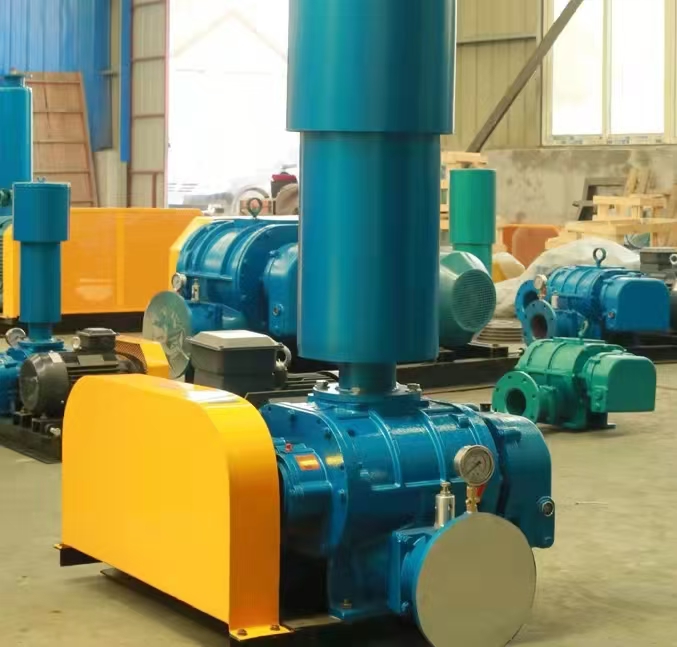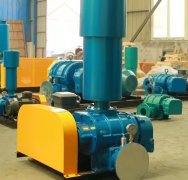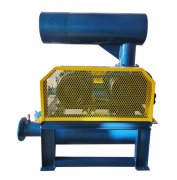Roots aerator blower is an oxygenation device designed based on the principle of Roots blower, mainly used to increase dissolved oxygen in water bodies and widely used in aquaculture, sewage treatment and other fields. Here is a detailed introduction:
structural composition
It mainly consists of two parts: Roots blower and oxygenation device. The Roots blower is the core component that compresses and delivers gas through relative motion between two rotating blade rotors (usually three bladed impellers) inside the cylinder. The oxygenation device is responsible for converting the high-pressure airflow generated by the Roots blower into microbubbles and uniformly dispersing them into water.
working principle
The motor drives one impeller to rotate, and through the synchronous gear, the other impeller rotates synchronously at the same speed and in the opposite direction. During the rotation of the impeller, a vacuum is formed at the inlet, and air is drawn into the inlet chamber. As the impeller rotates, the air in the inlet chamber is carried by the sealed chamber to the exhaust chamber. The impellers that mesh with each other in the exhaust chamber squeeze out the air, and the oxygen is dispersed into the water in the form of microbubbles through devices such as microporous tubes in the oxygenation device, achieving oxygenation.
Performance Characteristics
-Large exhaust volume and high exhaust pressure: It can provide stable and large gas output, and the high exhaust pressure ensures that oxygen can be fully dispersed into the water body.
-Stable operation: It has the advantages of simple structure, easy manufacturing, low vibration, low noise, long-lasting performance, and long-term continuous operation.
-Energy saving: Adopting advanced energy-saving technologies and optimized designs to reduce energy consumption and noise pollution.
-Easy to maintain: The structure is simple and convenient for daily maintenance and upkeep.
Application field
-Aquaculture provides sufficient oxygen for aquatic organisms such as fish and shrimp, promoting their healthy growth, especially suitable for high-density aquaculture environments, and can accurately control the oxygen supply.
-Wastewater treatment: In the aeration tank of the wastewater treatment plant, a large amount of air is continuously transported to the water, allowing the microorganisms in the activated sludge to fully contact with oxygen, decompose pollutants in the wastewater, and purify water quality.
-Chemical production: Used for transporting and stirring gases, such as ammonia and other gas raw materials in fertilizer production, to provide power for reactor stirring.
-* * Other fields * *: It can also be applied to cement conveying, pneumatic conveying, flue gas desulfurization and denitrification, ventilation and other fields.



